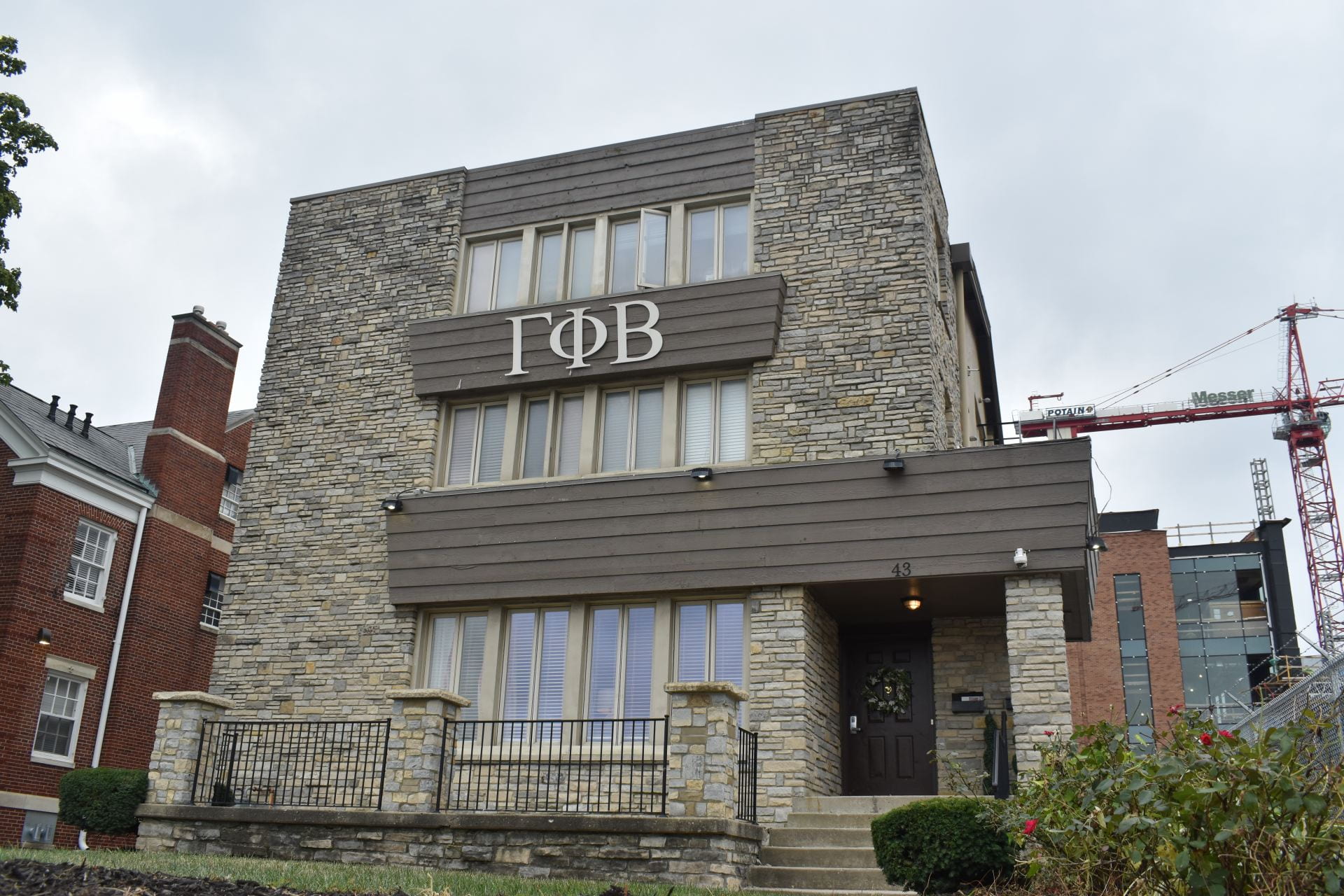
Gamma Phi Beta is one of many Greek Life organizations adjusting its fall recruitment to comply with COVID-19 guidelines. Credit: Mackenzie Shanklin | Assistant Photo Editor
Like every year, fall semester brings informal fall Greek Life recruitment, but this year there is one significant hitch: COVID-19 guidelines restricting typical sorority and fraternity activities.
Four councils govern Ohio State’s recognized fraternities and sororities: the Interfraternity Council, the Multicultural Greek Council, the National Pan-Hellenic Council and the Panhellenic Association. Each council, with the guidance of Sorority and Fraternity Life in the Office of Student Life, was responsible for developing policies for recruitment activities that complied with health guidelines during the COVID-19 pandemic, Hunter Hartwig, assistant director of Sorority and Fraternity Life, said in an email.
According to the Sorority and Fraternity Life website, 12 percent of students are involved in Ohio State’s 62 fraternities and sororities.
Drew Fitch, president of the Interfraternity Council and a member of the Pi Kappa Alpha fraternity, said he was troubled by the uncertainty COVID-19 posed to Greek life from the outset.
“The biggest challenge was not knowing what the university would do at first, whether we were even going to be allowed to move in or not,” Fitch, a fourth-year in finance, said. “We largely held off until they came to us. After we got the go-ahead, the council came together and discussed options.”
Fitch said that although chapters in the Interfraternity Council use fall recruitment largely as a means to build interest with freshmen who pledge in the spring as part of a “deferred recruitment process,” many of the council’s 27 chapters decided to not host fall recruitment events or to hold the events online. The council set specific guidelines for organizations that decide to host in-person events.
In-person events will be allowed again after Labor Day and will be organized with mask requirements in outdoor locations, Fitch said. All food will be prepackaged to prevent contamination, and information about these events can be found on Facebook and Instagram.
“It is going to be different, but I think freshmen should still come out,” Fitch said. “The key is to meet people and get that head start before spring when hopefully we can fully open up activities again.”
On the chapter level, Kristen Adams, a third-year in criminology and criminal justice and membership vice president of Gamma Phi Beta sorority, said the sorority is making the best of a difficult situation.
Adams said the Panhellenic Association, which oversees 18 sororities at the university, provided her resources about limiting the spread of COVID-19 during recruitment. She said she’s also been collaborating with other sororities at the university.
“We text, check in to see how the other person is doing and generally help figure things out and work through issues,” Adams said.
Adams is responsible for planning the sorority’s “informal” recruitment — the more relaxed fall semester process to bring a sorority’s membership to full capacity if it is running low. Formal recruitment, which Adams said includes house tours and more “in-depth conversations,” occurs in the spring.
The challenges aren’t the same for all Greek life organizations. Krishna Brucia, a fourth-year in health sciences and president of Delta Phi Omega sorority, said the smaller chapters in the Multicultural Greek Council face unique challenges with not having in-person events.
“That decision is tough because we are a smaller organization, and it is always easier to get recognition and take advantage of opportunities when you can see people in person,” Brucia said. She said Delta Phi Omega’s fall recruitment will be completely virtual.
Despite having virtual activities, like game nights and individual meetings on Zoom, Brucia said fall recruitment will not be the same.
“In-person, one-on-one conversations will always have a better feel,” Brucia said.


